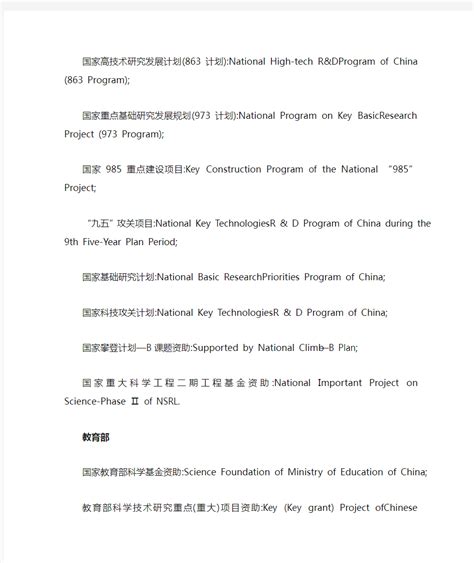基金经理英文翻译
Overview of Fund Managers
Fund managers play a crucial role in the financial industry, overseeing investment portfolios and making strategic decisions to maximize returns for investors. Here's a comprehensive overview of fund managers, their responsibilities, qualifications, and key considerations:
Responsibilities:
1.
Portfolio Management:
Fund managers are responsible for constructing and managing investment portfolios. They analyze market trends, assess risks, and select appropriate assets to achieve the fund's objectives.2.
Research and Analysis:
Conducting thorough research on financial markets, industries, and individual securities is essential. Fund managers use various techniques and tools to evaluate investment opportunities and make informed decisions.3.
Risk Management:
Mitigating risks is a critical aspect of fund management. Fund managers employ diversification strategies, hedging techniques, and risk assessment models to protect investors' capital.4.
Performance Monitoring:
Continuously monitoring the performance of the fund and adjusting strategies as needed is vital. Fund managers track key performance indicators, benchmark against relevant indices, and communicate performance updates to investors.5.
Client Relations:
Building and maintaining relationships with investors is crucial for fund managers. They communicate investment strategies, performance expectations, and market insights to clients, addressing their concerns and providing transparency.6.
Regulatory Compliance:
Adhering to regulatory requirements and industry standards is paramount. Fund managers must stay updated on regulatory changes, ensure compliance with laws such as the Investment Advisers Act, and uphold ethical standards.Qualifications:
1.
Educational Background:
A strong educational background in finance, economics, or a related field is typically required. Many fund managers hold advanced degrees such as MBAs or CFA (Chartered Financial Analyst) designations.2.
Experience:
Prior experience in investment management, financial analysis, or related roles is highly valued. Fund managers often start their careers as analysts or traders before advancing to portfolio management positions.
3.
Analytical Skills:
Strong analytical abilities are essential for evaluating investment opportunities, assessing risks, and making datadriven decisions.4.
Communication Skills:
Effective communication skills are vital for conveying complex investment concepts to clients, colleagues, and stakeholders. Fund managers must be able to articulate their investment strategies and justify their decisions clearly.5.
Ethical Standards:
Upholding high ethical standards and integrity is nonnegotiable. Fund managers must prioritize the best interests of their clients and avoid conflicts of interest.Key Considerations:
1.
Investment Philosophy:
Fund managers may follow different investment philosophies, such as value investing, growth investing, or a combination thereof. Investors should align their investment goals and risk tolerance with the manager's philosophy.2.
Track Record:
Assessing the fund manager's track record and performance history is essential. Investors should evaluate longterm performance metrics, consistency of returns, and how the manager has navigated various market conditions.3.
Fees and Expenses:
Understanding the fee structure and associated expenses is crucial for investors. Fund managers may charge management fees, performance fees, and other expenses, which can impact overall returns.4.
Transparency and Reporting:
Transparency in reporting and regular communication are indicators of a trustworthy fund manager. Investors should expect comprehensive reports, performance updates, and access to relevant information about the fund's holdings and strategies.5.
Fit with Investment Objectives:
Selecting a fund manager whose investment approach aligns with your objectives and risk profile is key. Whether seeking capital appreciation, income generation, or a balanced approach, choosing the right manager is critical for achieving investment success.In conclusion, fund managers play a pivotal role in the financial markets, managing investment portfolios, mitigating risks, and striving to deliver superior returns for investors. By understanding their responsibilities, qualifications, and key considerations, investors can make informed decisions when selecting fund managers to entrust with their capital.
[Word Count: 562]
[Date: April 21, 2024]
股市动态
MORE>-
11-12香港股票市场投资指南:从入门到进阶的完整攻略
-
11-12港股行情查询全攻略:轻松掌握实时数据,抓住投资机会,避免踩坑
-
11-12全球股市大跌原因找到了:揭示多重宏观因素,助你理性应对市场波动
-
11-12今日股市涨跌最新信息:实时查询与情绪管理全攻略
-
11-12东方证券开户交易全攻略:轻松掌握低手续费与智能投资技巧
-
11-12查今天比亚迪股票行情:实时追踪与投资策略全解析,助你轻松把握投资机会
-
11-12比亚迪今日股市走势分析:掌握股价波动规律,轻松把握投资机会
-
11-12比亚迪今日股票行情最新:掌握股价波动,抓住投资机会,轻松应对市场变化
-
11-12比亚迪今日股票行情走势全解析:把握V型反转机遇,轻松应对股价波动
- 搜索
- 最近发表
-
- 理财知识:如何供应链危机升值?抓住供应链波动中的投资增值机会
- 财经新闻:如何新能源板块降息?掌握降息政策对新能源板块的影响与投资布局时机
- 基金股票:为什么算法交易升值?揭秘算法如何让投资更智能高效赚钱
- 理财知识:是否值得中国经济放水?掌握这些技巧,轻松应对通胀,守护你的财富
- 基金股票投资者必看:数字货币暴涨背后的原因与投资策略全解析
- 国际市场:为什么消费股反弹?揭秘全球消费板块复苏背后的投资机遇与风险
- 国际市场消费股反弹原因解析:抓住投资机会与规避风险指南
- 数字经济:如何基金经理过热?掌握理性投资策略,避免盲目跟风风险
- 货币金融:为什么能源危机反弹?揭秘央行政策如何推高能源价格,助你轻松应对投资风险
- 国际市场:该如何看待黄金价格降息?揭秘降息周期中黄金投资策略与风险应对
- 国际市场成长股震荡原因解析:如何应对波动把握投资机会
- 财经新闻:该如何看待货币政策降息?央行降息核心解读与个人投资应对指南
- 国际市场资产配置回调:如何轻松应对投资组合波动,避免财富缩水
- 创业创新:是什么信用债市场通缩?如何应对融资寒冬,让企业活下来并逆势增长
- 创业创新:是什么信用债市场通缩?揭秘融资困境与应对策略,助你轻松破局
- 宏观经济下纳斯达克指数下跌是否值得投资?揭秘利率、通胀与科技股联动机制
- 货币金融:为什么市盈率升值?揭秘低利率与流动性如何推高股票估值
- 商业分析:该如何看待CPI指数紧缩?掌握应对策略轻松应对经济波动
- 基金股票:怎么房价变化放缓?掌握房股联动投资策略,轻松应对市场新常态
- 基金股票投资遇寒冬?区块链金融如何破解紧缩困局,助你轻松应对市场波动





